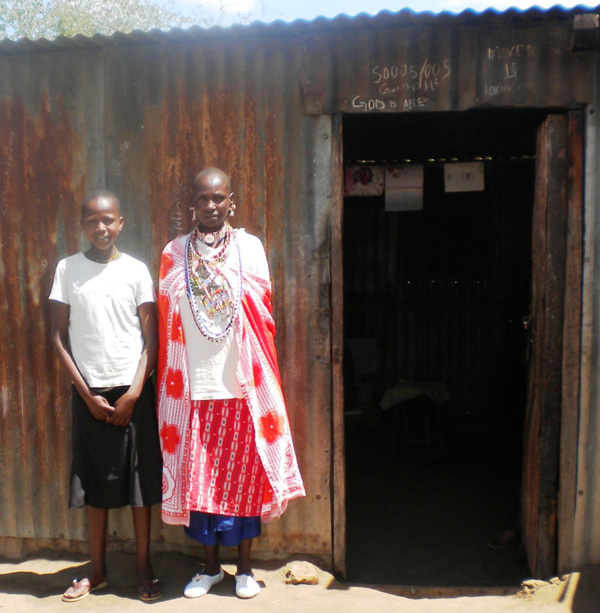At the age of 9, Teresiah was nearly a victim of female genital mutilation (FGM).
The procedure involves altering or injuring the female genitalia for non-medical reasons and carries the risk of death or serious, lifelong health consequences. It is recognized internationally as a violation of the human rights. Yet, millions of girls across the world are still at risk.
Teresiah was vulnerable from a young age. Her father died when she was 3, and her mother became seriously ill. Teresiah became a caretaker, missing days and then weeks of school. She fell critically behind in her studies. In the meantime, her older sister was given away in marriage so her family could afford for her brothers to stay in school.
Teresiah faced the same fate, until a family elder intervened. He told a local chief that Teresiah was at risk of FGM and child marriage. Then, the Nenkashe Education Centre stepped up to help Teresiah.
Now, she’s 16 and back in school. Her teachers worked tirelessly to help Teresiah catch up on her studies, and today she’s excelling academically and the reigning Kajiado County Junior Women’s Marathon Champion.
Success stories like Teresiah’s don’t have to be rare.
A future of female leaders like Teresiah begins by ending FGM. The United Nations observes International Day of Zero Tolerance for Female Genital Mutilation each year on Feb. 6. You can help end FGM by contributing to GlobalGiving projects that support the rights of women and girls in communities that are affected by the practice.
Are you ready to make an impact in a young girl’s life? Here are three facts you need to know about FGM, along with a few zero tolerance projects around the world that need your support:
Despite FGM being classified as a human rights violation by the World Health Organization, it is still happening to girls all over the world. To combat FGM, Girls’ Power Initiative teaches at-risk girls in Nigeria about gender issues, life management, and sexual and reproductive health so they can become agents for social change in their communities.
To stop the spread of FGM, organizations are working in communities where FGM is prevalent to educate people about its potential harm. Hope Foundation for African Women is working in Kenya to train health and human rights promoters. These promoters will teach lessons that focus on reproductive health and human rights to break the cycle of discrimination against women.
The practice of FGM has existed for over 2,000 years and is often performed on young women days before their marriages or on babies who are just a few days old. For girls fleeing FGM, rescue centers like the one built by Expanding Opportunities in Kenya provide safety and the chance to pursue an education.
Source: United Nations
If we all do our part to empower girls like Teresiah, a world with no FGM by 2030 is possible!

Featured Photos: Above, Teresiah flashes a smile and peace sign for the camera. Below, Teresiah stands with her mother. All photos courtesy of 'Help 50 Masaai Girls Get Education, Not Husbands' by Nenkashe Education Centre.
Find exactly what you're looking for in our Learn Library by searching for specific words or phrases related to the content you need.